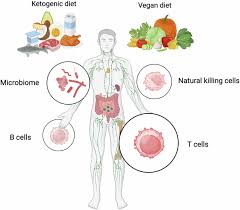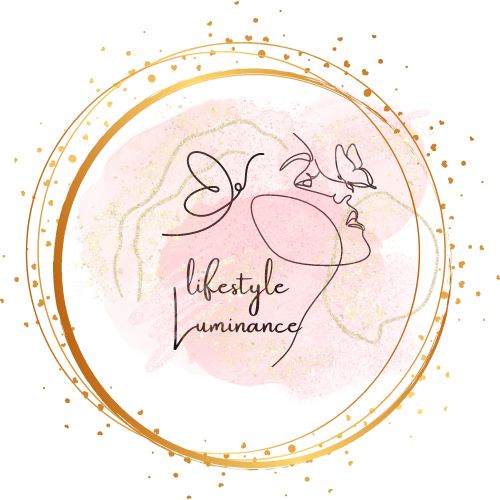In an age where maintaining good health is more important than ever, supporting the immune system has become a top priority for many individuals. While no food or supplement can guarantee immunity from illness, a balanced diet rich in specific nutrients can help your body mount an effective immune response. This article explores the science of immune-boosting nutrition, highlighting the foods, vitamins, and lifestyle habits that contribute to a healthy immune system.

Understanding the Immune System
The immune system is a complex network of cells, tissues, and organs that work together to protect the body from harmful pathogens, such as bacteria, viruses, fungi, and toxins. It includes two main parts:
- Innate immunity: The first line of defense that responds quickly and non-specifically to invaders.
- Adaptive immunity: A more specialized system that learns to recognize and remember specific pathogens for a more effective response in the future.
Nutrition plays a vital role in both systems. Nutrient deficiencies can weaken immune responses, while proper nutrition helps regulate immune activity and inflammation.

Key Nutrients for Immune Support
1. Vitamin C
Vitamin C is a powerful antioxidant that supports various cellular functions of both the innate and adaptive immune systems. It helps stimulate the production and function of white blood cells and enhances the skin’sin’s barrier function.
- Best sources: oranges, strawberries, kiwi, bell peppers, broccoli, and Brussels sprouts.
Tip: Because vitamin C is water-soluble, it’s important to consume it regularly, as the body doesn’t store it in large amounts.
Immune-Boosting Nutrition: How to Strengthen Your Body’s Natural Defenses
2. Vitamin D
Vitamin D is essential for immune function and has anti-inflammatory properties. It enhances the pathogen-fighting effects of monocytes and macrophages—white blood cells that are important in the immune defense.
- Best sources: Fatty fish (salmon, mackerel), egg yolks, fortified foods, and sunlight exposure.
Research note: Low levels of vitamin D have been linked to increased susceptibility to infections, especially respiratory illnesses.

3. Zinc
Zinc is crucial for normal development and function of immune cells. It helps maintain the integrity of skin and mucous membranes and plays a role in wound healing and inflammation regulation.
- Best sources: Meat, shellfish, legumes, seeds (pumpkin, sesame), nuts, and whole grains.
Important: Excess zinc can suppress immune function, so stick to recommended daily intakes unless advised otherwise by a healthcare provider.
4. Iron
Iron supports the immune system by helping carry oxygen to cells and playing a key role in the proliferation and maturation of immune cells. Both iron deficiency and overload can impair immune response.
- Best sources: Red meat, poultry, seafood, beans, lentils, spinach, and iron-fortified cereals.
Note: Vitamin C enhances the absorption of non-heme iron from plant-based foods.
5. Vitamin A
Vitamin A helps maintain the structure and function of the skin and mucous membranes, making it harder for pathogens to enter the body. It also supports the production and function of white blood cells.
- Best sources: carrots, sweet potatoes, pumpkin, spinach, kale, and liver.
Fun fact: The body converts beta-carotene (from plant sources) into active vitamin A.
Immune-Boosting Nutrition: How to Strengthen Your Body’s Natural Defenses
6. Vitamin E
As a fat-soluble antioxidant, vitamin E helps combat oxidative stress, supports T-cell function, and regulates immune responses.
- Best sources: Nuts (almonds, hazelnuts), seeds, spinach, avocado, and sunflower oil.
7. Selenium
Selenium is a trace mineral with antioxidant properties that can enhance the immune response and prevent cellular damage from free radicals.
- Best sources: Brazil nuts (one or two a day is enough!), seafood, eggs, and whole grains.

Gut Health and Immunity
Around 70% of the body’s immune cells reside in the gut, making digestive health crucial for immunity. A well-balanced gut microbiome supports immune function, reduces inflammation, and improves response to infections.
Probiotics—beneficial bacteria that help maintain a healthy gut microbiome.
- Sources: Yogurt, kefir, sauerkraut, kimchi, miso, kombucha.
Prebiotics—non-digestible fibers that feed probiotics.
- Sources: Garlic, onions, leeks, bananas, asparagus, oats, apples.
Takeaway: A diet rich in both prebiotics and probiotics supports optimal immune and digestive health.
Immune-Boosting Nutrition: How to Strengthen Your Body’s Natural Defenses
Protein and Immunity
Protein is a macronutrient that is essential for the repair and building of body tissues, including those involved in the immune response. Antibodies and immune system signaling molecules (cytokines) are made from protein.
- Best sources: lean meats, poultry, eggs, dairy, legumes, soy, nuts, and seeds.
Plant-based diets can provide adequate protein with proper planning and variety.
Table of Contents
Hydration and Immunity
Water is crucial for overall health, including immune function. It helps transport nutrients to cells and flush out toxins. Mucous membranes that protect entry points (like the nose and throat) also rely on hydration to function effectively.
- Tip: Aim for 8–10 cups of water a day, more if you are active or live in a hot climate.
Immune-Boosting Superfoods
While no food is a miracle cure, some are particularly rich in immune-supportive nutrients:
- Garlic: Contains allicin, which has antibacterial and antiviral properties.
- Ginger: Has anti-inflammatory and antioxidant effects.
- Turmeric: Contains curcumin, which may modulate the immune system.
- Green tea: Rich in antioxidants, particularly catechins.
- Berries: High in vitamin C and polyphenols.
- Mushrooms (especially shiitake and maitake): Contain beta-glucans that support immune cell activity.
Lifestyle Factors That Complement Immune-Boosting Nutrition
1. Sleep
Adequate, quality sleep is vital for immune function. During sleep, the body produces and releases cytokines that help fight infection.
- Goal: 7–9 hours of sleep per night.
2. Physical Activity
Moderate, regular exercise improves circulation, reduces inflammation, and promotes the healthy turnover of immune cells.
- Tip: Aim for at least 150 minutes of moderate-intensity exercise per week.
Immune-Boosting Nutrition: How to Strengthen Your Body’s Natural Defenses
3. Stress Management
Chronic stress suppresses immune function by increasing levels of cortisol and other stress hormones.
- Strategies: Mindfulness, meditation, deep breathing, journaling, yoga, and spending time in nature.
4. Avoiding Excessive Alcohol and Smoking
- Alcohol can suppress the immune system and impair nutrient absorption.
- Smoking damages the lungs and reduces immune resilience.

Supplements: Helpful or Hype?
While it’s best to get nutrients from food, supplements can help fill in nutritional gaps, especially if you have a known deficiency, dietary restrictions, or increased nutrient needs (e.g., pregnancy, aging, chronic illness).
Common supplements that may support immunity:
- Vitamin D (especially in winter or for people with limited sun exposure)
- Zinc (short-term use during infections)
- Vitamin C (to reduce duration of colds)
- Probiotics (for gut and immune health)
Caution: Always consult a healthcare provider before starting new supplements, as more isn’t always better, and some nutrients can be harmful in excess.
Creating an Immune-Supporting Meal Plan
Here’s an example of a one-day immune-boosting meal plan:
Breakfast
- Greek yogurt with mixed berries, chia seeds, and a drizzle of honey
- Green tea
Lunch
- Grilled chicken salad with spinach, red bell pepper, pumpkin seeds, and an olive oil vinaigrette
- A side of sweet potato
- Water with lemon
Snack
- Hummus with carrot and celery sticks
- A handful of almonds
Dinner
- Baked salmon with garlic and turmeric
- Steamed broccoli and quinoa
- A cup of kefir or herbal tea
Final Thoughts: Immune-Boosting Nutrition Is a Long-Term Investment in Immunity
Building a strong immune system doesn’t happen overnight. It’s the result of consistent, balanced immune-boosting nutrition, combined with a healthy lifestyle. Rather than focusing on a single “superfood” or miracle supplement, aim for variety, whole foods, and a diet rich in fruits, vegetables, lean protein, healthy fats, and fiber.
By fueling your body with the right nutrients and taking care of your mental and physical well-being, you’re giving your immune system the tools it needs to protect and heal you—today and in the future.
